Blog

Pride History in NEWisco
56 years ago, NYPD raided a local bar where gay, queer, and trans people gathered.
Having faced all the harassment and police violence they could tolerate, patrons of the Stonewall Inn said no more. Their uprising sparked a movement that continues in 2025.
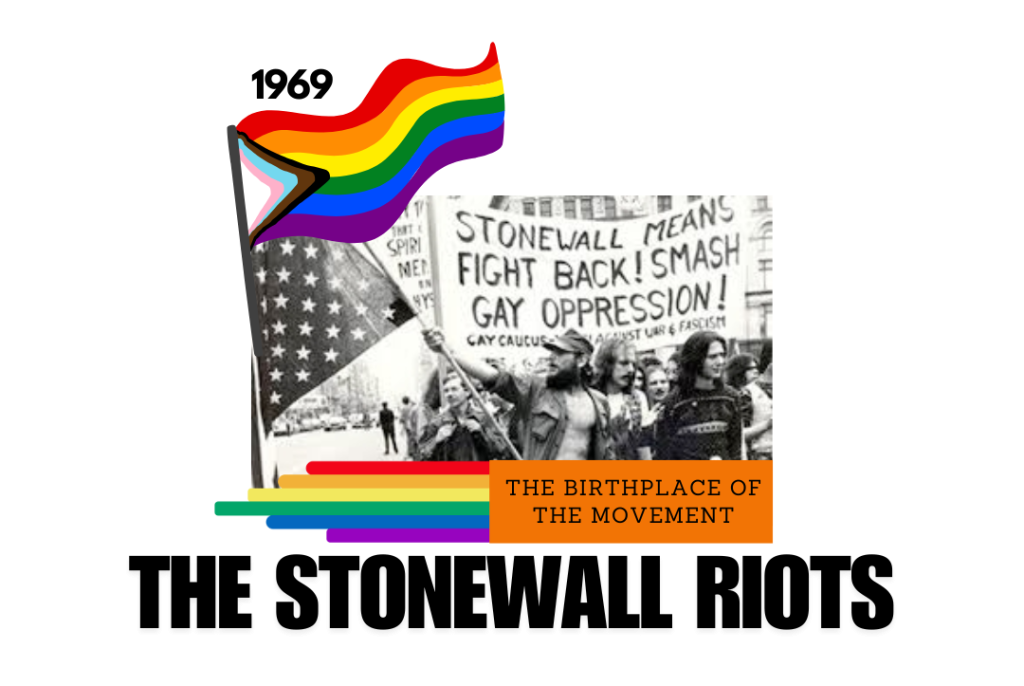
Back in 1969 it was illegal to serve gay people in bars, to have them dance with one another, and if you were a woman, to leave the house without three “feminine” items of clothing. These were grounds for arrest. Officers would arrive on scene at known gay bars, turn on the lights and force everyone to line up for identification. Anyone in drag? Arrested. Anyone identifiably trans? Arrested. Anyone without identification? Arrested. But for the NYPD’s Vice Squad, the raid at Stonewall on June 28th, 1969 around 1am didn’t go as planned.
Eight officers arrived to perform the raid at Stonewall which had 200 people inside who decided they didn’t want to cooperate. Officers deciding to book everyone had to wait for back up to arrive, letting those with proper ID who cooperated leave. Except they didn’t. They stood outside in solidarity, one community unified against oppression. By the time more police arrived, the crowd had doubled. The ignition point came when an officer clubbed a lesbian patron over the head for complaining that her handcuffs were too tight, and threw her into a police wagon.
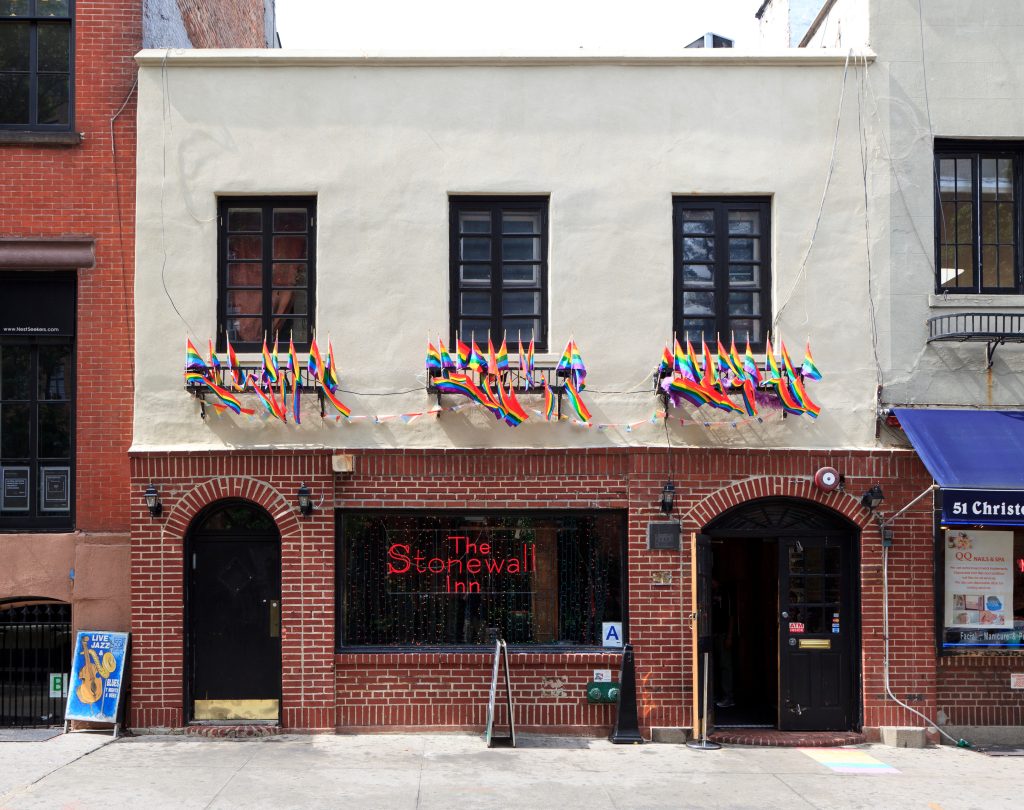
Now with a crowd swelled to 600, the police were severely outnumbered. Violence broke out with patrons and supporters throwing pennies, bottles, and stones, and attempting to overturn police vehicles. This riot lasted until 4am and ended with the streets cleared and 13 arrested. The next night, 1000 people came to protest.
This was the spark that brought the Gay Rights Movement to America’s attention. As you continue along our timeline, you’ll see how this one riot in New York City paved the way for the fights and freedoms in Northeast Wisconsin. Let’s explore this history.
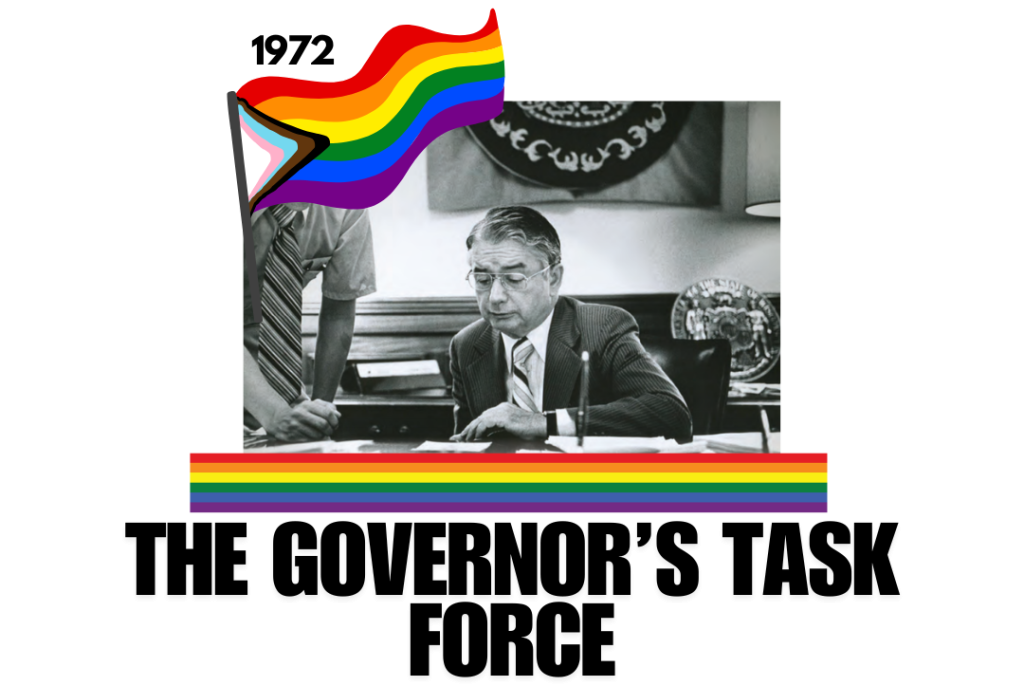
In 1836, sodomy, or the “penetration of the male body” was criminalized in the Wisconsin Territory. In 1955, this law was expanded to include cunnilingus, thus applying anti-homosexuality laws to women. 1972 saw Wisconsin Governor Patrick Lucey assign a task force to look into Judicial Organization. The task force concluded that “crimes against sexual morality” should be abolished, primarily to relieve the courts from needless cases.

(courtesy Paul Jacob and NE Wis. LGBT History project)
Founded in 1973, the Fox Valley Gay Alliance attracted members far and wide, from Fond du Lac, Wausau, Green Bay and Manitowoc, and met every other Tuesday in random members’ homes. Eventually in 1974 they needed a bigger space as meetings held between 40-50 people on average. With the help of this group the first openly gay bar in Appleton was created.
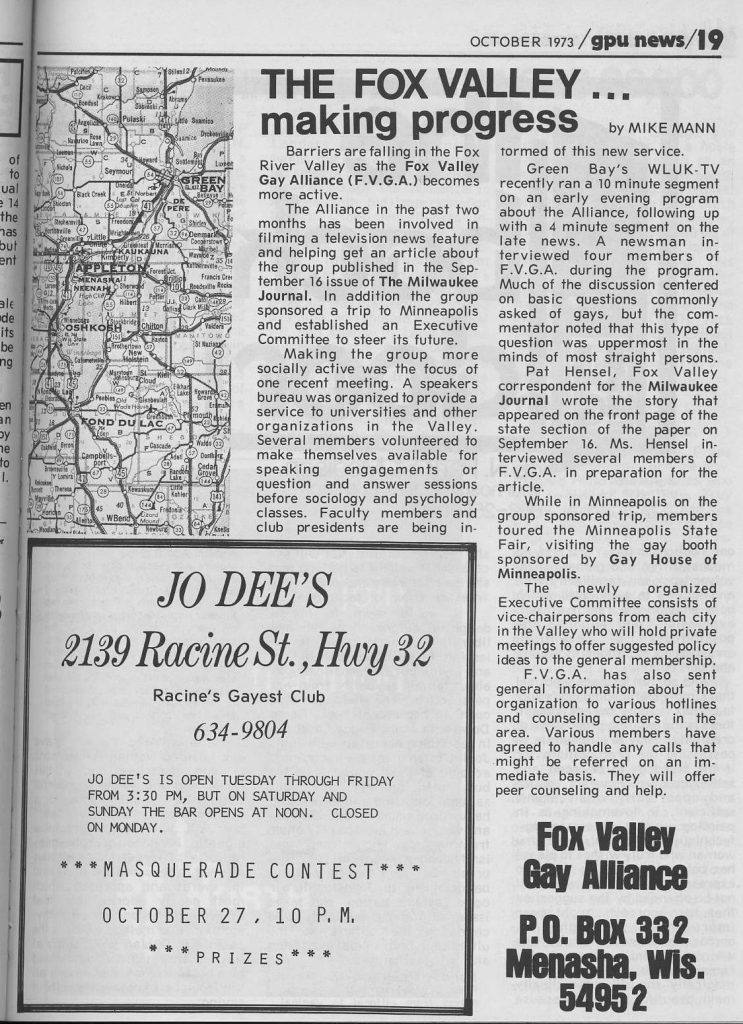
The group’s last meeting was held at Lambda Lounge in 1975 before it disbanded.
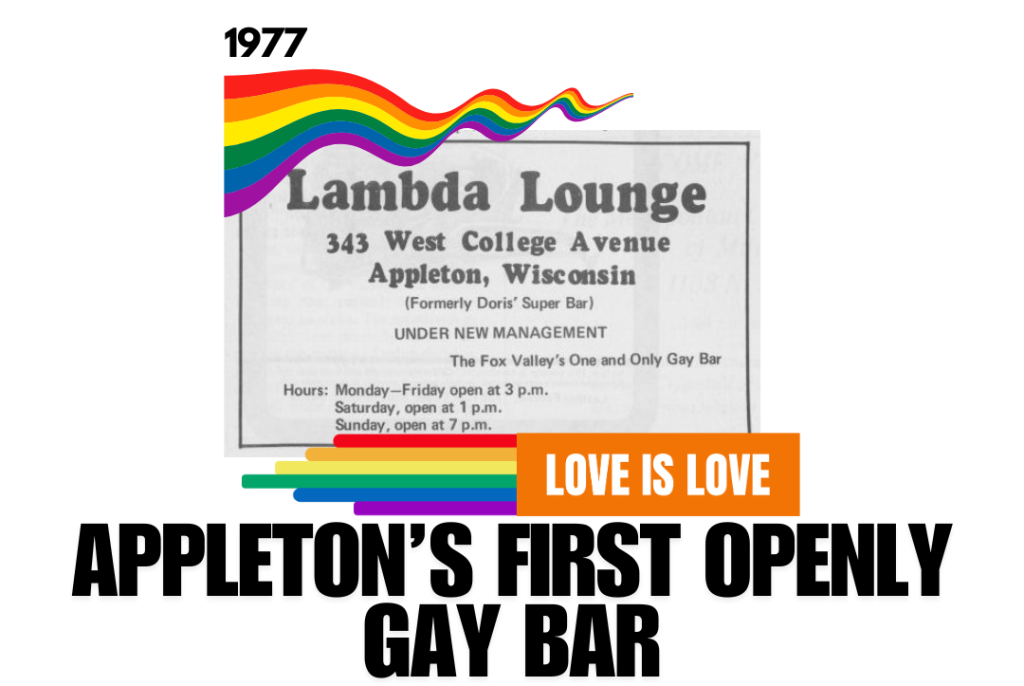
Lambda Lounge, previously known as Doris’s Super Bar, opened mid-1977 by Gene Koenke and Paul DeBruin who felt it was time for Appleton to have an openly gay bar.
There was backlash from the public, of course. So patrons who were safe to be themselves inside knew they could not arrive or leave alone due to harassment and violence that would often break out at that bar’s front.

A researcher for the University of Wisconsin-Green Bay’s “Our Voices: LGBTQ+ Stories of Northeastern Wisconsin” Dennis Jacob, found via the Appleton Post Crescent says “These early [gay] bars were rough…But the gay population in Appleton stood their ground and fought back.”
Lambda Lounge paved the way for LGBTQ+ bars in the Appleton area despite a short success and closing their doors due to competition from a similar bar down the road.
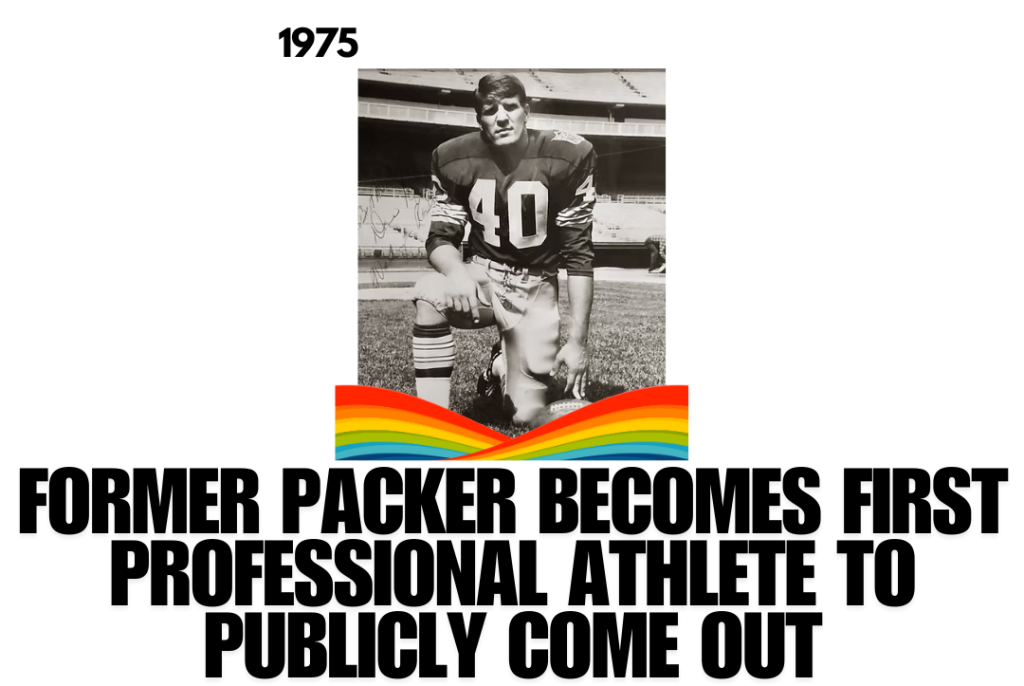
In 1975, three years after he left the NFL where he ended his career as a running back for the Green Bay Packers, Dave Kopay told a reporter for the Washington Star that he is gay.
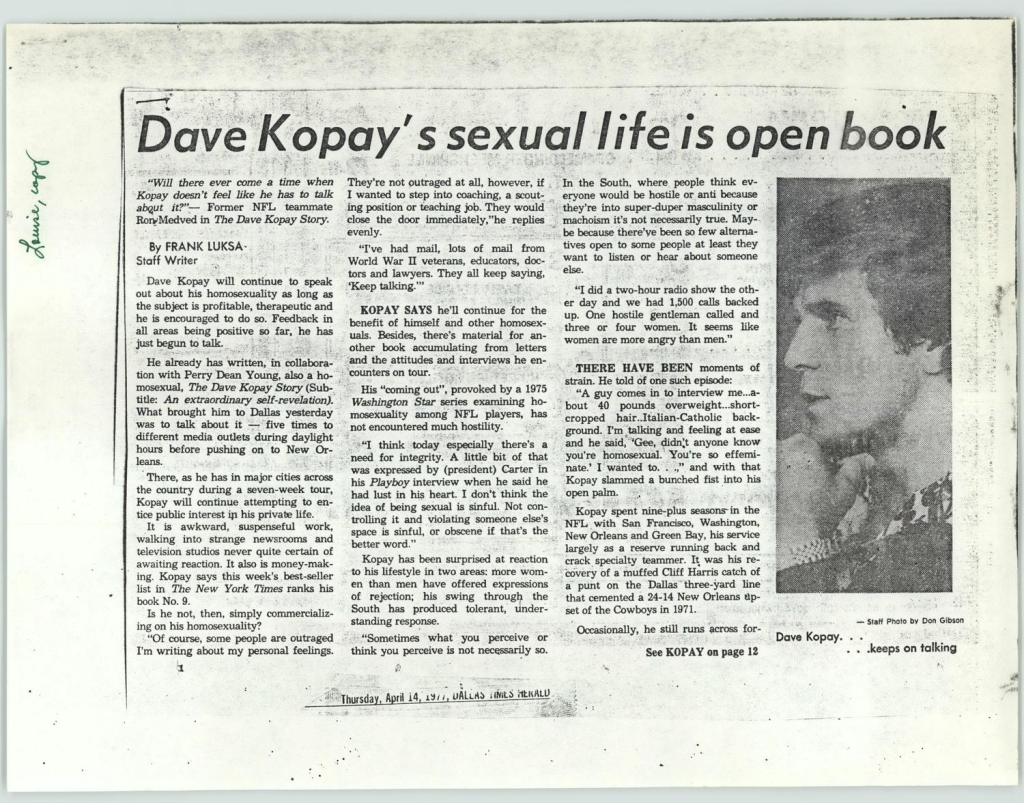
“I hear from people all over the world that my coming out has empowered them in their search for self.”
The backlash was tremendous. He sacrificed his career, was blacklisted from jobs, alienated by his family, and received death threats from his own father. Despite this, Dave has no regrets. He appeared on the cover of Milwaukee’s GPU Magazine in 1977.
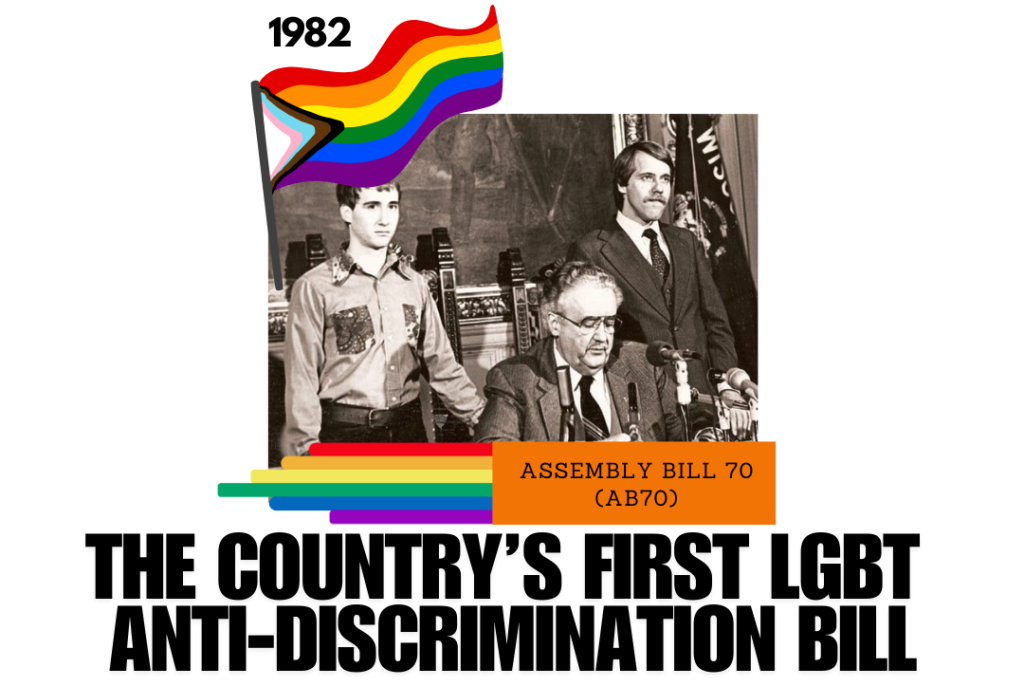
This was a game changer. Before this law, those who are LGBTQ+ were denied jobs and homes if they chose to be open about themselves, facing constant backlash from the country and clashed with police. This caused riots all over and inspired LGBTQ+ groups and communities to fight against the injustice.
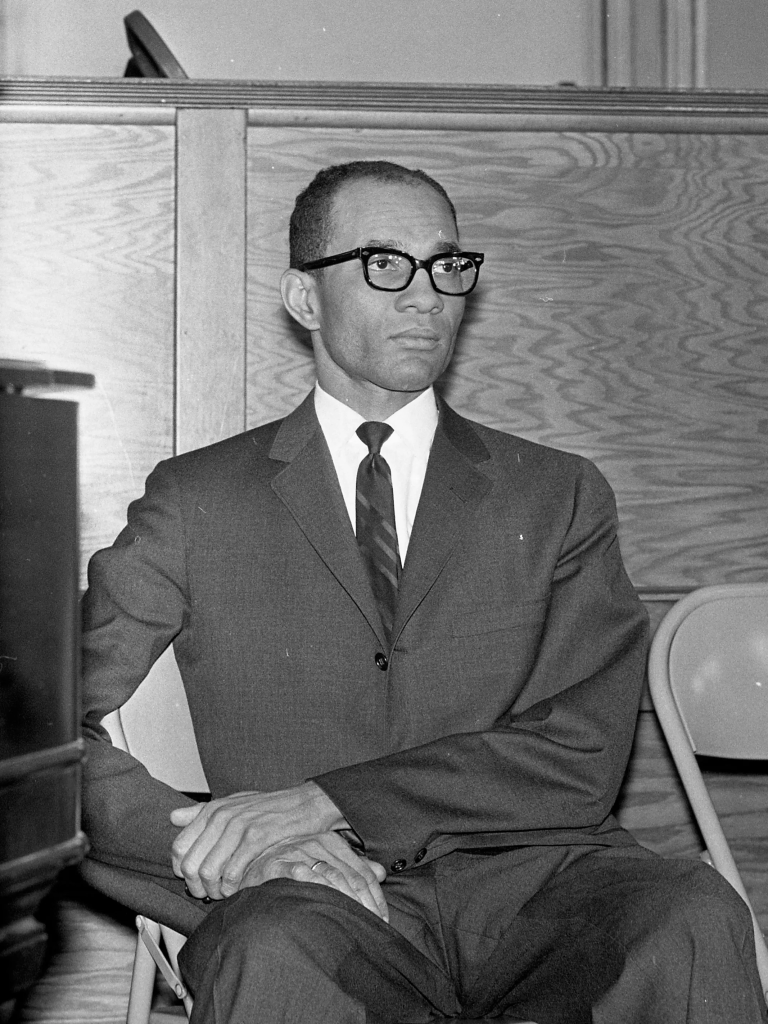
Joining the fight in Wisconsin was Legislator Lloyd Barbee, who drew from these clashes to gain support from his peers for a bill to prevent discrimination based on sexual orientation. When he retired he passed his work on to Representative David Clarenbach. In 1981, Representatives Clarenbach, Coggs, Leopold, Becker and Ulichny officially proposed Assembly Bill 70 (AB70) with bipartisan support which was signed into law in 1982 by Governor Lee S Dreyfus.

A concerning health crisis emerging in gay communities brought together a small group of individuals in the spring of 1983 to discuss what they can do to help and be proactive. They felt there needed to be a structured and researched response to the epidemic now known as HIV/AIDS. The C.E.N.T.E.R. Project Inc. (Community Endeavor for Needs in Testing, Education and Referral) was born.
The first few years after they incorporated in 1985, this group was purely volunteer based. In 1987 they received grants that allowed them to hire an Executive Director and Community Health Educators. By 1989, through community efforts, several other organizations were born including the Fox Valley AIDS Project (FVAP).

In 1997 the C.E.N.T.E.R. Project, or what it’s now known as Center Project, INC (CPI) merged with CPI merged with the AIDS Resource Center of Wisconsin (ARCW) and continues to serve the community to this day as Vivent Health.
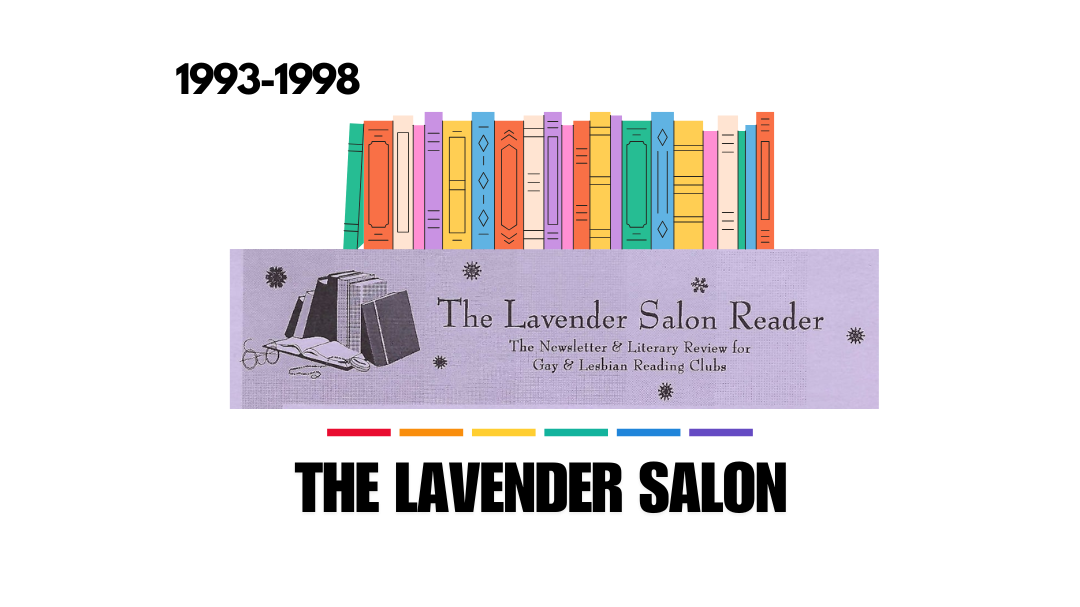
March of 1993, a group of gay men and women gathered at a friend’s house on Meade St in Appleton for a potluck. It was there they discovered a desire for forming a book discussion group covering LGTBQ+ topics. The Lavender Salon was then born. Founding member Michael Nitz told Civic Media:
“The Lavender Salon Reader was an outgrowth of The Lavender Reading Salon (a LGBT book discussion group hosted for LGBT folk in NE Wisconsin) and my involvement in the American Library Association. We needed a mechanism to let folks who missed a meeting to know what they should be reading and how the discussion of the book they missed went.”
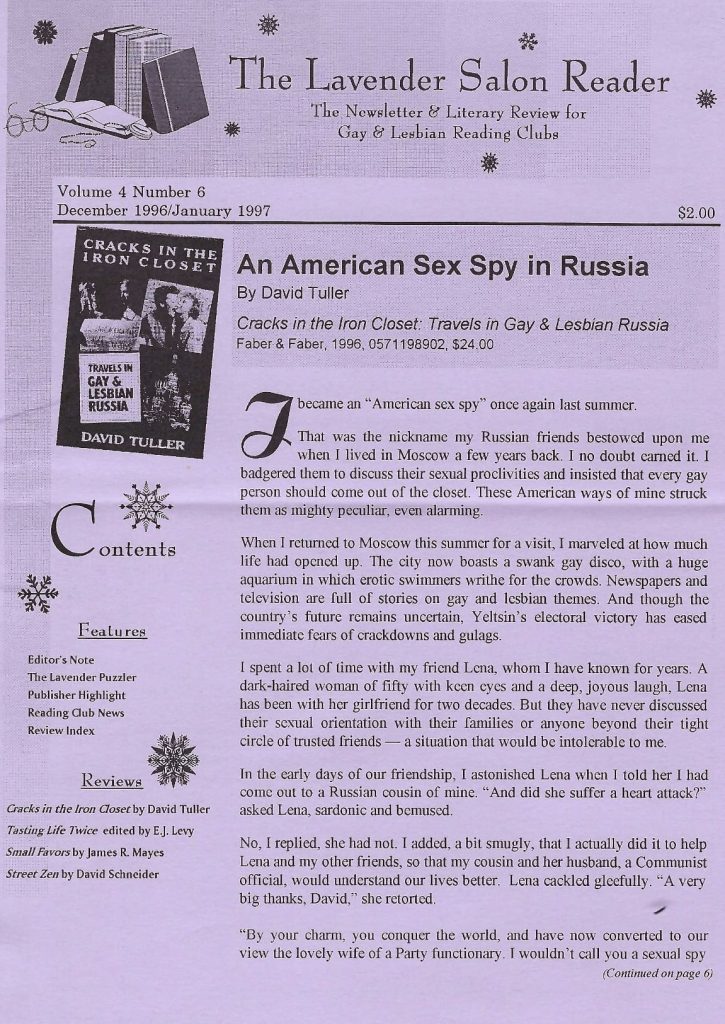
At the ALA conferences I realized that many LGBT librarian also hosted book clubs with a gay/lesbian focus. So I expanded the focus of the newsletter to incorporate their activities and reviews of their discussions. The newsletter eventually captured activities of some 30 to 40 groups. Mostly within the US, but also in Europe and South Africa. It was great fun meeting folks from other clubs and putting the newsletter together, but it was also a lot of work.
At the end, I had hoped to turn the project over to one of the group leaders in Texas, but he wasn’t able to source funding for it and I closed the newsletter up in December 1998.”
Read a summary of the history of the Salon and the Salon Reader.
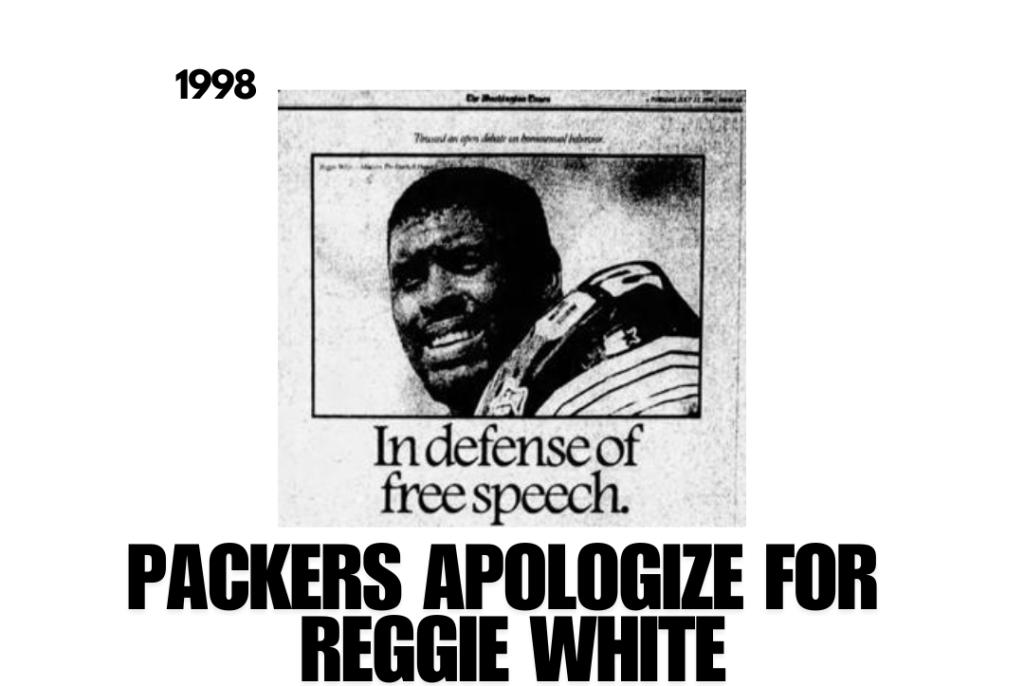
Despite backlash from the community for a speech he made in front of the Wisconsin State Assembly on March 25th, 1998, Reggie White appeared in an anti-gay ad just months later while wearing his Green Bay Packers Jersey.
The ad, titled In Defense of Free Speech, featuring his wife and paid for by 15 Christian organizations, was featured in the Washington Times and USA Today documenting his criticism for speaking out against homosexuality.
Coach Mike Holmgren made it clear that White’s views did not represent the team’s and Packers president Bob Harlan faxed a letter of apology to the Human Rights Campaign stating:
“Mr. White is free as a private citizen to speak and to express his personal views. It is, of course, a right you personally defended in your letter to us. However, the use of the Packers uniform in this case … was not approved and was an inappropriate use of the uniform.”
The NFL said it ordered White to remove his picture from the advertisements because the use of logos and insignia is prohibited without the permission of NFL Properties.
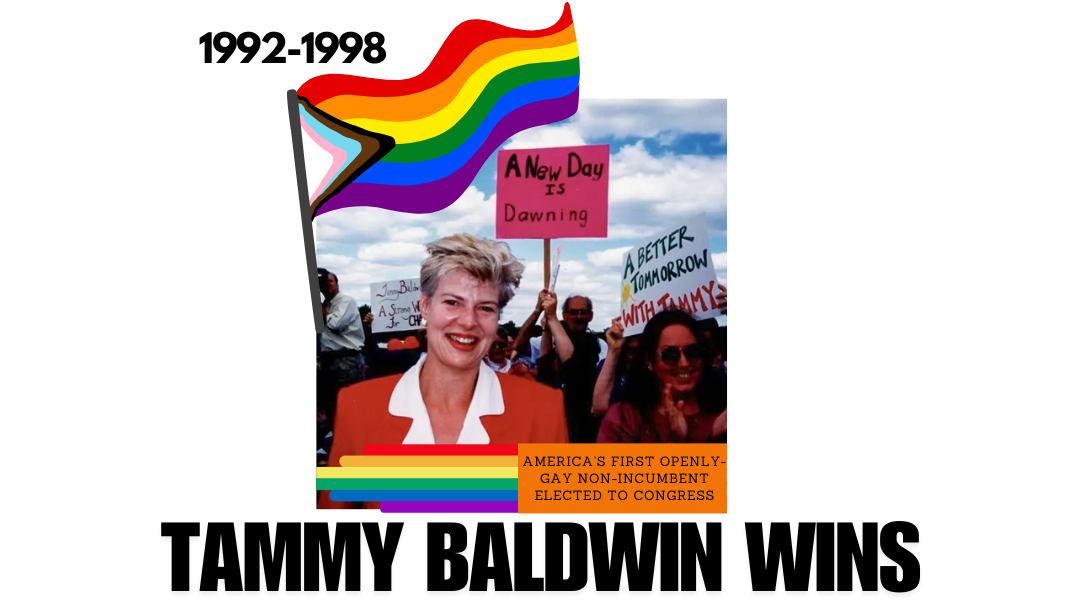
A quadruple win for Wisconsin! In 1992, Baldwin became the first openly lesbian woman elected to the Wisconsin State Assembly after winning with a 59% majority against Labor and Farm Party nominee Mary Kay Baum and Republican nominee Patricia Hevenor.
With encouragement from family and friends, despite powerful voices telling her it’s not her time and the public isn’t ready for it, Tammy ran for Wisconsin’s 2nd Congressional District in the U.S. House of Representatives. In 1998 with a 53% majority, Baldwin defeated Republican Josephine Musser marking her the first woman to represent Wisconsin in Congress and America’s first openly-gay non-incumbent elected to Congress.
Tammy pushed forward in 2012 to run for Wisconsin Senator. On November 6, 2012, Baldwin won with a 51.4% majority against former Wisconsin Governor Tommy Thompson to became the first openly gay candidate to be elected to the U.S. Senate.

On June 2nd, 2000 President Clinton issued a proclamation declaring June as Gay and Lesbian Pride month. June was picked for the anniversary of the Stonewall Riots in New York 1969.
“Our Nation is at last realizing that gays and lesbians must no longer be “strangers among friends,” as the civil rights pioneer David Mixner once noted. Rather, we must finally recognize these Americans for what they are: our colleagues and neighbors, daughters and sons, sisters and brothers, friends and partners.”
– President Clinton’s 2000 Proclamation
President Clinton intended to remember the history of the LGBTQ+ community but also create an opportunity for reform. At this time, Clinton also installed “Don’t Ask/Don’t Tell”, a policy allowing LGBTQ+ Americans to serve in the military, but only their identity was never disclosed.
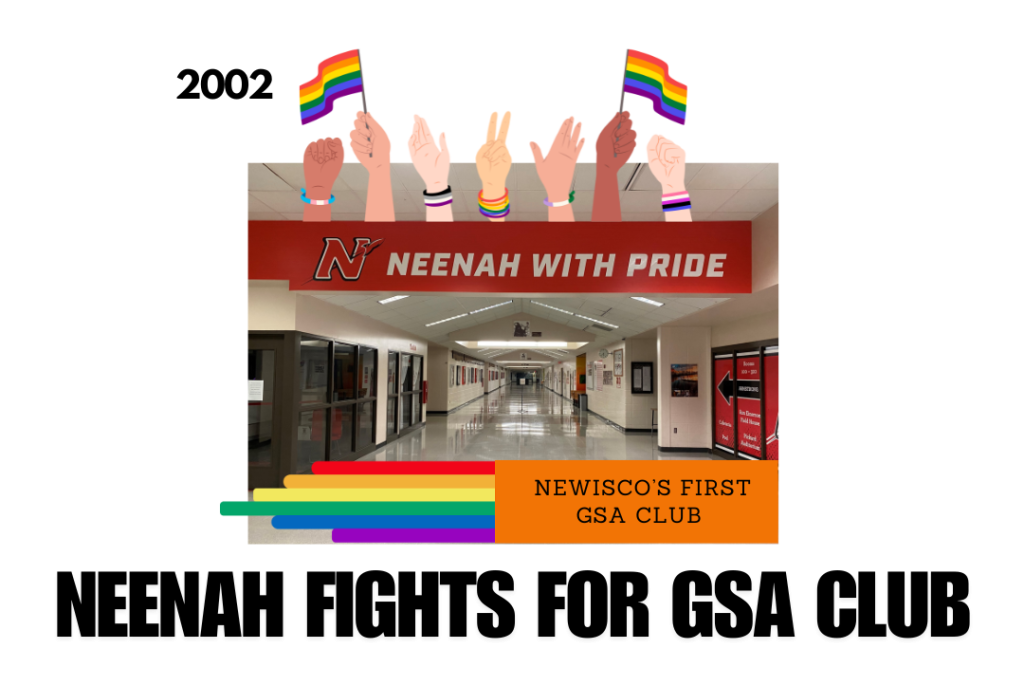
All the students of Neenah High School wanted to do was to create a GSA (Gay Straight Alliance) Club, the first outside of Madison and Milwaukee. But the school administration denied their request. The school already had an inclusion group called STAND which addressed diversity. This became the reason Neenah Superintendent James Wiswall turned down the club.
“We wanted to start a GSA because STAND had really important issues around race and racism to deal with and we had unique things that we wanted to talk about that were very different from what STAND was doing,” Nick Ross, a student at the time and now a member of the school board, told The Post-Crescent.
The students refused to give up. They contacted the American Civil Liberties Union (ACLU) and filed an appeal with the board. This garnered intense media attention from around the state. With help from the ACLU they were considering and preparing to take the fight to court. Thankfully in October 2002 after a school board meeting packed full of parents, students and community members giving hours upon hours of statements of support or opposition based on religious grounds, the board ultimately approved their status during a closed door meeting.

Neenah’s fight inspired the Valley and within a year all three Appleton High Schools had their own clubs, paving the way for GSA groups across Northeast Wisconsin.
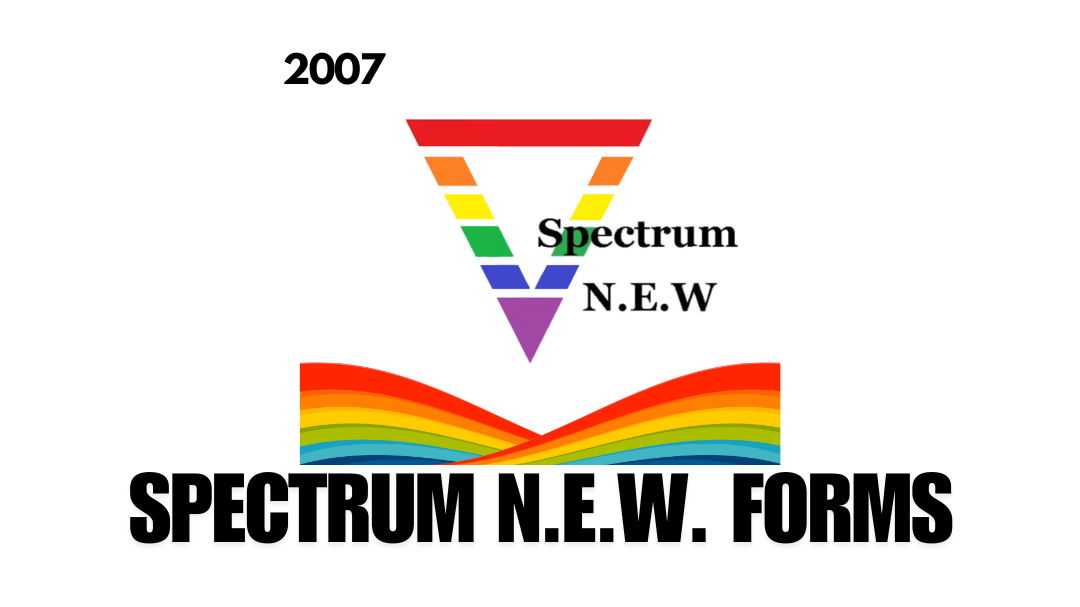
You’ll often hear in LGTBQ+ circles the joys that Harmony Cafe in Appleton used to bring. Their accepting and diverse nature gave Spectrum N.E.W. a chance to form. This group created a supportive social gathering for LGBTQ+ over 18 years of age.
When Harmony Cafe closed their doors they began meeting at Goodwill Campus and now have found a permanent home with Angels of Hope Metropolitan Community Church where they continue to meet every Monday night with a variety of activities.

In 2006, the LGBTQ Education and Advocacy Council put forth the proposal for the LGBTQ Resource Center with the help and support of the Rainbow Alliance for HOPE and other various allies on campus. It wasn’t until the fall of 2008 that the center was able to open it’s doors.
The center celebrated it’s 10th year in 2019 where the director, Liz Cannon, and team debated adding the ‘+’ to the title.
“We want the ‘+’ to say, ‘We are a center that is so inclusive; there are so many identities among us that we can’t possibly give a letter to each,’” she explained. “And yes, I do struggle with the fact that we are still seen as privileging certain identities by using the recognizable acronym ‘LGBTQ,’ but at this moment in history we are stressing visibility.”
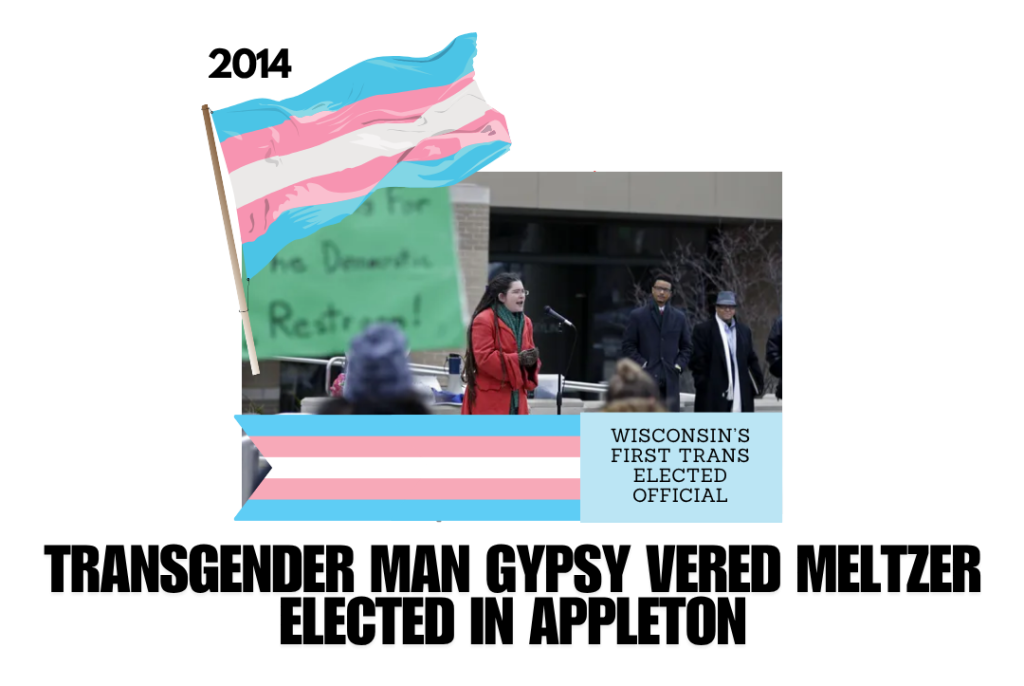
Gypsy Vered Meltzer was elected to the City Council in Appleton on April 1st, 2014 making him the first Transgender Elected Official in Wisconsin. Meltzer defeated Barney Lemanski by a margin of 295 to 199 votes in the race for the council seat representing Appleton’s District 2. To date he is still representing this office.
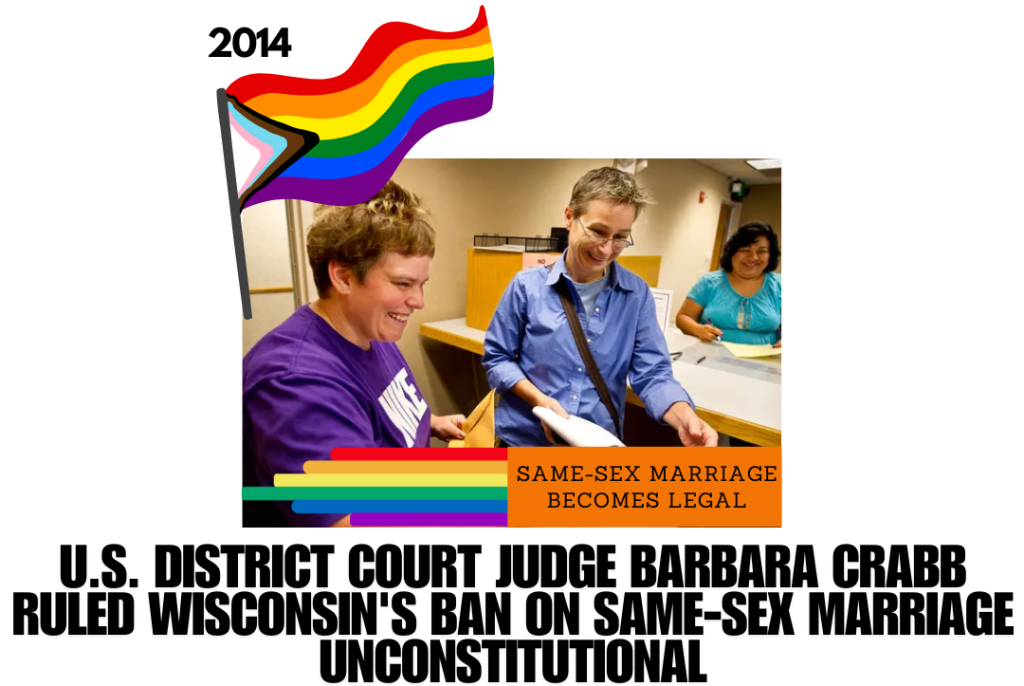
June 6th, 2014 U.S. District Court Judge Barbara Crabb ruled Wisconsin’s ban on same-sex marriage was unconstitutional. However, she did not issue any ways for state officials to enforce this decision. Milwaukee and Dane counties began issuing marriage certificates. However, less than a week later Judge Crabb put a hold on lifting the ban.
“Because my review of (the 14th Amendment) convinces me that plaintiffs are entitled to the same treatment as any heterosexual couple, I conclude that the Wisconsin laws banning marriage between same-sex couples are unconstitutional.”
This may seem outrageous to some but she had to place the hold due to Wisconsin Republican Attorney General J.B. Van Hollen appeal of lifting the ban. This placed many couples in states of limbo and confusion.
“After seeing the expressions of joy on the faces of so many newly wedded couples featured in media reports, I find it difficult to impose a stay on the event that is responsible for eliciting that emotion, even if the stay is only temporary,” Crabb said in her order. “Same-sex couples have waited many years to receive equal treatment under the law, so it is understandable that they do not want to wait any longer. However, a federal district court is required to follow the guidance provided by the Supreme Court.”
September 14th, 2014 the lower courts ruling unanimously affirmed by the the U.S. Court of Appeals for the 7th Circuit for both Indiana and Wisconsin. Appeals continues up until October 6th, 2014 when the Supreme Court denied addressing any of the 7 marriage equality cases from 5 states on appeal, allowing the US Court of Appeals decision to stand. The next day, Wisconsin courts resumed issuing marriage licenses, a victory felt around the world.
Oshkosh’s first same-sex marriage was between couple Bob Archer and Allen Borgwardt from Neenah on June 11th, 2014.

Appleton’s first same-sex marriage took place June 9th, 2014 between Miriam Douglass and Ligia Rivera. They were the first to have their marriage license accepted in Outagamie County.
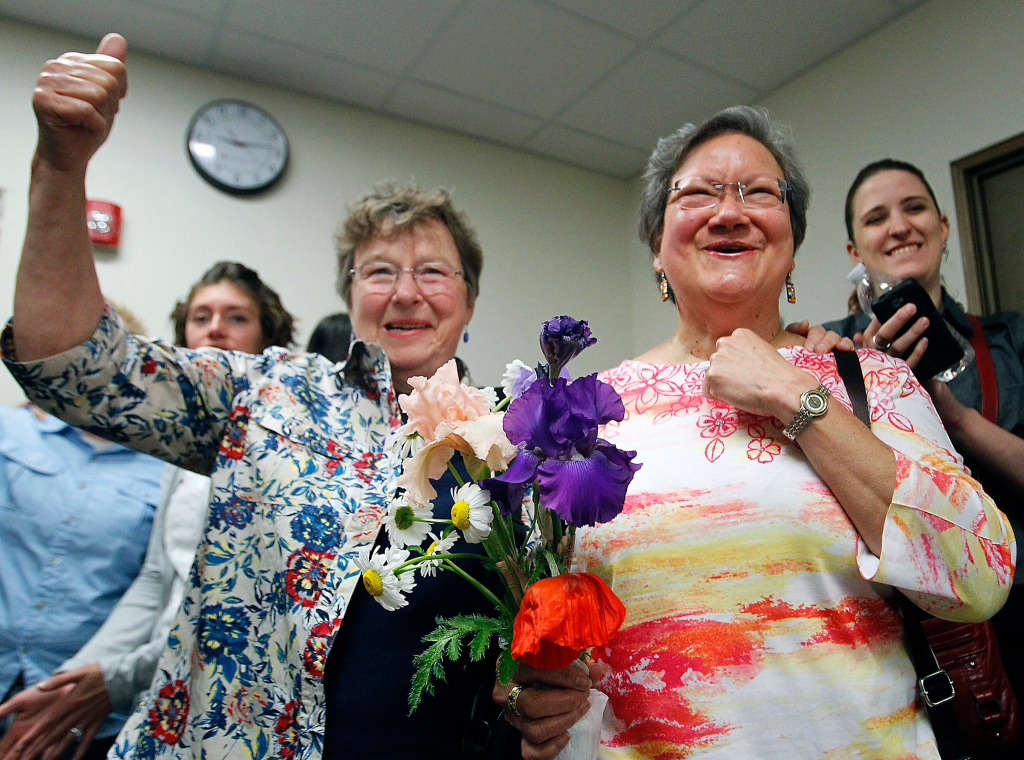
Green Bay’s first same-sex marriage happened June 9th, 2014 between longtime domestic partners Lisa and Berri West. The couple waited outside the courthouse and planned to be married on the sidewalk as soon as they heard the ruling.

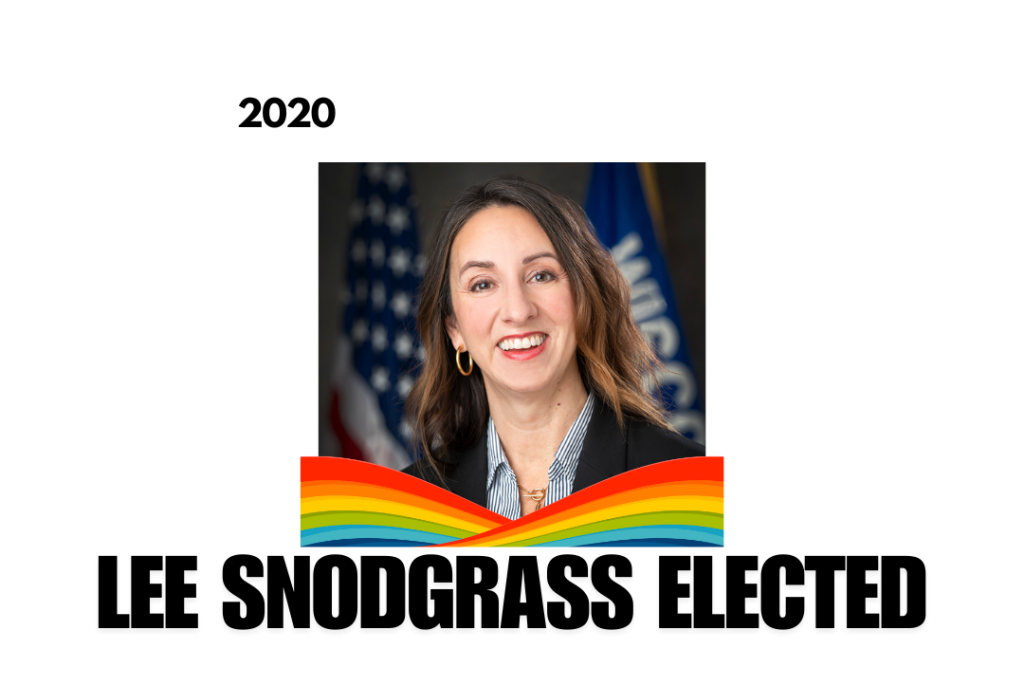
After running unsuccessfully for State Senate in 2018, Lee Snodgrass was elected to represent the 57th Assembly District in 2020. This made her the first openly LGBTQ+ member of the State Legislature from the Northeast. She was quickly elected to lead the LGBTQ Legislative Caucus. After district maps were redrawn in 2024, Northeast Wisconsin voted elected three more LGBTQ+ legislators: Rep. Ryan Spaude, Rep. Amaad Revira-Wagner, and Sen. Kristin Dassler-Alfheim.
“When I first ran for office in 2018 (State Senate), I knew my past relationship with a woman could become something the opposition might try to use as a weapon against me. It was important to me that I own my story and embrace my truth and my bisexuality is a part of authentically introducing myself to voters. Telling my story before others told it for me was a priority.”
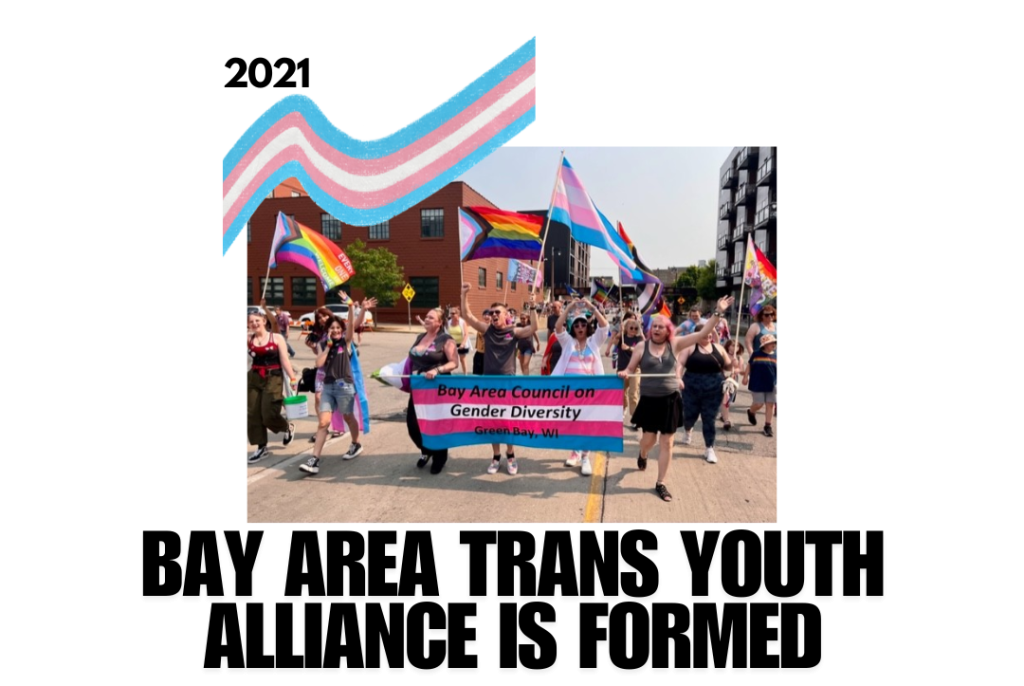
In response to concerns raised by parents of trans youth, local trans supportive leaders met in the storeroom at Napalese, Green Bay’s oldest gay bar.
Together they formed the Bay Area Trans Youth Alliance, a group focused on creating monthly opportunities for gender non-conforming, transgender, nonbinary youth in grades 7-12 to meet, great, socialize and support one another in a supervised capacity.
In 2022 they partnered with Dave & Busters to create monthly drop-in meetings where to date over 100 youth have attended.
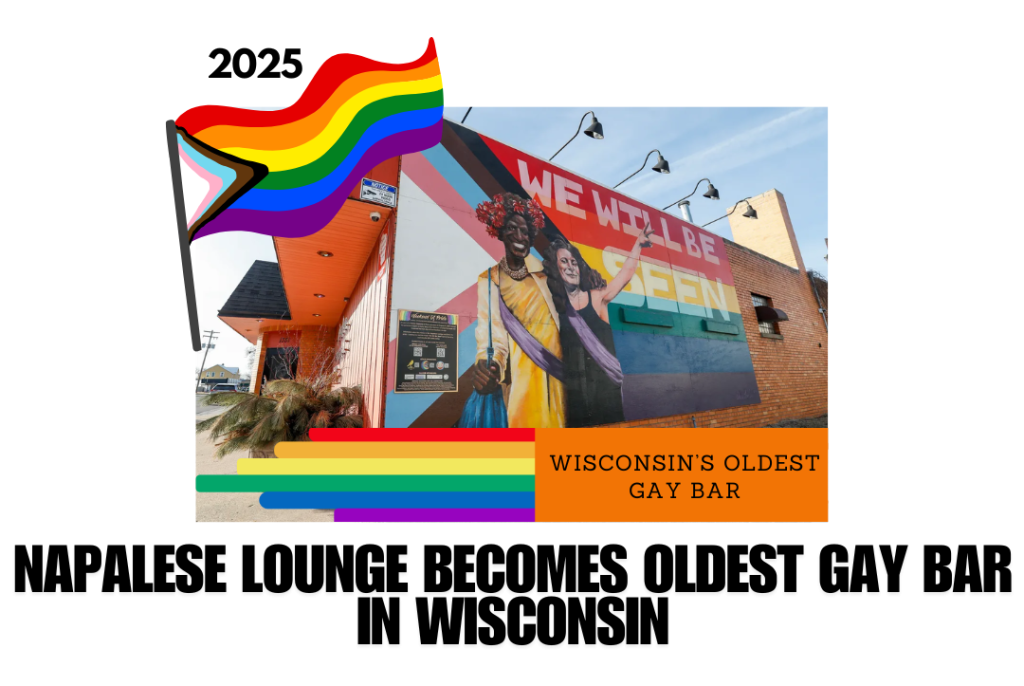
The Napalese Lounge opened in 1982 at 515 S. Broadway by Tim Westlund. Since then it has both changed hands and location.

Five years after it’s opening, Malcolm Loch became the new owner until his death in 1997. The bar was then purchased by Nancy Garrison and Anne Eiler who two years later were forced to move the bar’s location because of Green Bay’s redevelopment project for the Broadway District.
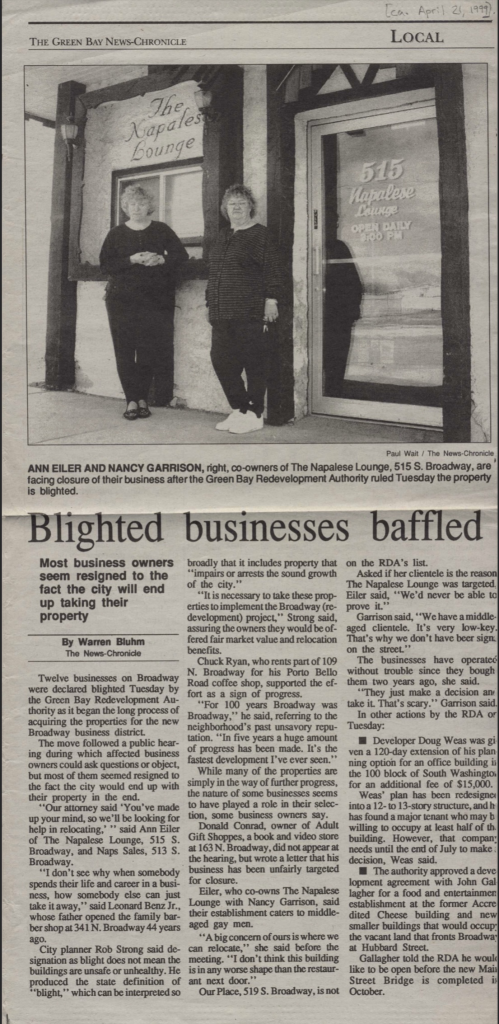
The lounge, affectionately referred to as Naps from patrons, moved to it’s current location at 1351 Cedar St in Green Bay where Anne and Nancy remained as co-owners until 2008 when Anne became the sole owner until 2012. The bar is currently owned by Arnold (Butch) Pendergast and his partner Stacy De Sotle.

In March 2025, the sudden closure of Milwaukee’s This Is It has pushed Naps to become the oldest gay bar in the state of Wisconsin, a title patrons aren’t willing to celebrate. There has been a struggle of these bars surviving and the closure of the state’s 57 year old establishment has the community concerned and shook. The Green Bay Press-Gazette covered the story on why there is cause for concern.
These are just some of parts of history for the LGBTQ+ community since the Stonewall Riot, the turning point and creation of the Gay Rights Movement. It’s been less than 60 years and the fight for acceptance and change is still going strong despite the substantial number of victories since.
And it continues to grow every year.
You can join the celebrations in Northeast Wisconsin with:

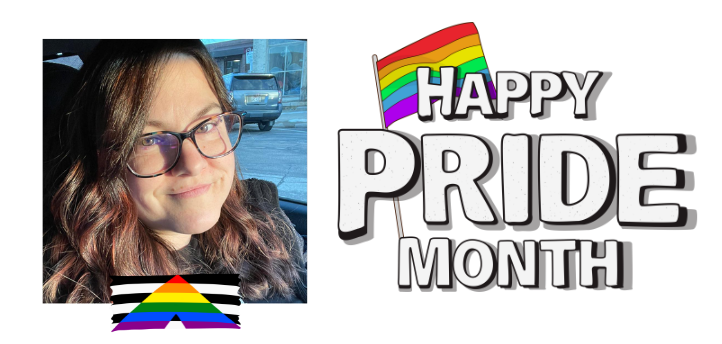
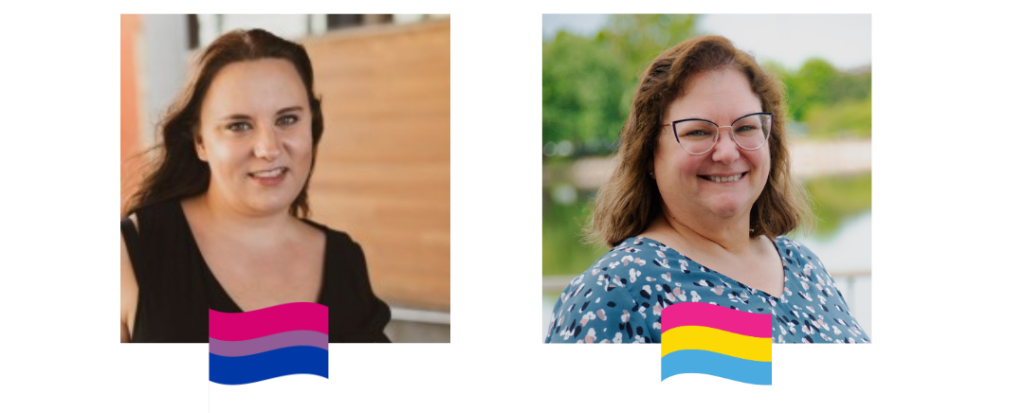
98.3 FM - 1100 AM
601 S Main St, Oshkosh, WI 54902
Studio: (920) 786-2278 (text or call)
Office: (608) 819-8255
Sales : (262) 634-3311